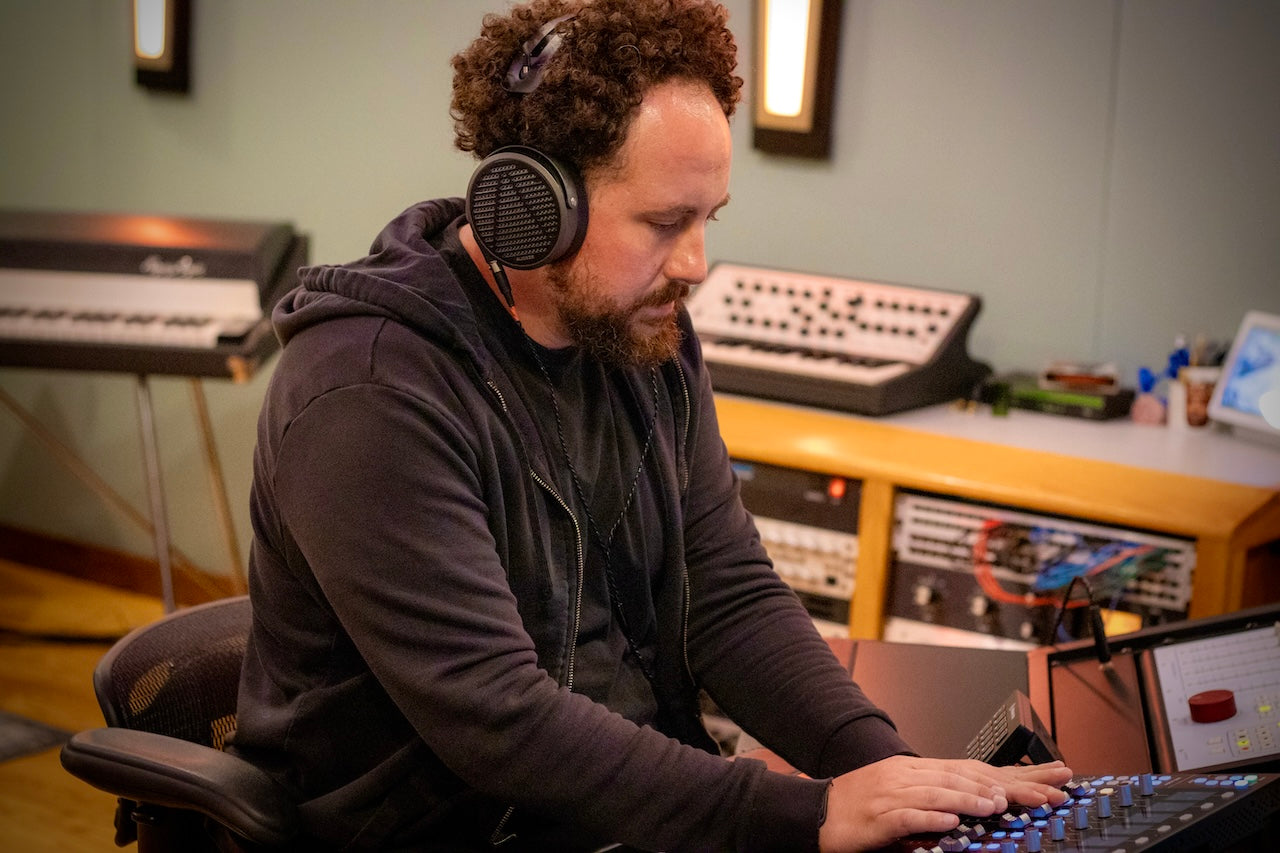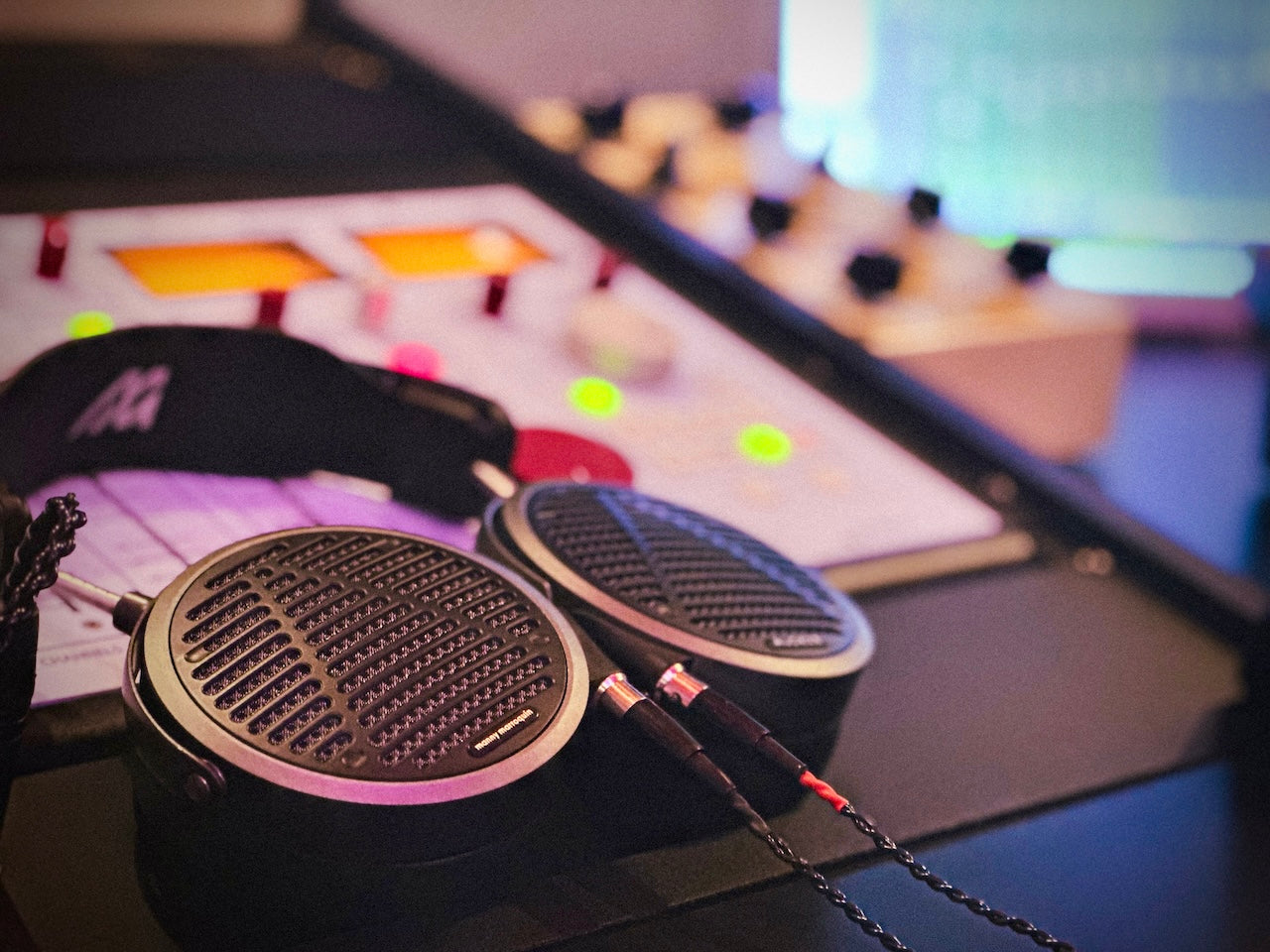
Angie Randisi is a highly acclaimed recording engineer and mixer from Canada, with three Grammy nominations and multiple platinum records to her name. Known for her technical prowess and keen ear, Angie has worked with some of the biggest names in the industry, including Lil Baby, Young Thug, Tory Lanez, 42 Dugg, Glorilla, and PartyNextDoor.

Josh Rogosin defined the tiny desk sound and has recorded and mixed over 800 shows, including Taylor Swift, Sting and Shaggy, Anderson .Paak, Mac Miller, Nile Rogers, and Bono and the Edge. His mixes have been heard on YouTube over a billion times. Now he’s introducing Global Sound and Ghost Light Concerts, traveling the world to discover how location inspires people to make music.

Li-sa-X is a Japanese female Guitarist/Composer who was born in 2005. Her cover video of RACER X's "Scarified," which she posted when she was 8 years old, garnered more than 5 million views and attracted a lot of worldwide attention. After watching this video, the composer of the song Paul Gilbert (MR. BIG) invited her to join his online guitar school as a scholarship student. She made her professional debut at the age of 12. Her playing technique has been described as “the future of rock."

Santaflow is an artist, composer, producer, entrepreneur, teacher and showman, politically incorrect and with millions of followers around the world (mainly in Spanish-speaking countries). After more than 20 years of career, he feels fitter and more eager than ever to continue creating songs and making them sound better every day. A restless lover of the world of sound, he works with several of the leading brands in the sector.
April 23, 2024
Ari Morris is a 78 times gold & platinum and Grammy nominated mixer, engineer, and producer. He is known for his mixes on records like Moneybagg Yo's "Wockesha", "Said Sum", and "Time Today", Young Dolph's “Major" “100 Shots”, Glorilla and Cardi B's single "Tomorrow 2”, Key Glock’s “Russian Cream”, and his Atmos mixing on Lil Durk’s “7220”, Rod Wave’s “Beautiful Mind” and many many more. He also mixed Royce da 5’9”s Grammy nominated album “The Allegory", and got a nomination for album of the year for vocal mixing work on "Good Morning Gorgeous (deluxe)" by Mary J. Blige. Ari works out of his personal studio facility, Edge Recording, in Memphis, TN.

Man, its hard to pick them out sometimes... I’m always so focused on what I’m doing next, but here’s a few: “A Gangsta’s Pain” for Moneybagg Yo. We had done a couple projects together leading up to that one, but this one felt different. I think everyone working on it just kinda knew it... and mixing it I felt like I had to figure out how to level up the sound, cuz we’ve always got to level up, but also figure out how to keep it grimy and true to him and his roots. But like when we finished that one, and it came down to the literal wire getting it done and turned in, and I saw how people were receiving it, how special it was to them. Those are the feelings that stick. I think another one for me is Young Dolph and Key Glocks album “Dum and Dummer”, man making that album was a trip. We were camped out in a mansion in Bel Air for like a month recording and cooking up in the movie theater in the basement, literally nonstop. It was a whirlwind but the energy in the house was crazy. And then I got to take it home to my studio and mix, but I had to find a way to keep that same energy from the house so that we didn’t lose it in the in-between. I feel like that one came out really really special and marked a huge turning point in my career, and theirs. I definitely can’t leave out mixing Royce Da 5’9”s album “The Allegory”, working on that was monumental for me. I got the call through Carlos Broady, the legend, and ended up flying up to Detroit to mix the album at Royce’s studio, Heaven. Walking into the studio the first day was just that, heaven, I was sitting in the studio with one of my favorite artists… working on his music! It was an intense experience, the project is crazy and one of my favorites I’ve ever worked on sonically and artistically. I don’t think I’ve ever worked as hard while having as much fun as I did on that album... and a few months after it came out, I got the call that it was nominated for rap album of the year, my first Grammy nom!
I’m working primarily as the mixer on damn near everything I’m doing nowadays. Both in stereo and in Dolby Atmos. For me, its about dialing in the vibe and making sure that records are breathing and hitting in the right way to impact the listener.
My journey in music started with a guitar back in New Jersey when I was like 12. I found bands like Black Sabbath and Pantera when I was a little kid and fell in love. It was really when I started listening to Pantera and hearing how Dimebag played that I decided I wanted to learn how to do that. By the time I was in high school I was playing in a band and that was all I cared about. I ended up finding my love for recording around that time too.. the band I was in wanted to record a demo, but we didn’t have any money for a studio so I bought one of those digital Tascam 8 tracks and we made an EP in my parents basement. Around that time I was also discovering east coast hip hop and falling in love with that sound too. I started to shift my vision from just the guitar to the other side of it, the engineering and the process of making a record. I moved to Memphis to go to college for recording and I started my journey as an intern in a recording studio. There I became immersed in southern rap, Trap, and the deep musical heritage of Memphis. And I got to meet and start working with artists like Dolph, and Glock, and Moneybagg early in their careers and I feel like I’ve been running at a full sprint ever since then.
I owe so much to having incredible mentors in my journey in studios. Skip McQuinn was the studio manager at the studio I started at and he took me under his wing and taught me how to act, how to carry myself, how to interact with other people, and how to hustle in the music business. Then I was able to work as Nil Jone’s assistant and he taught me everything I know about mixing records. He’s a genius in the studio and he taught me how to fly. I still rely on our relationship to this day. Having that sensei in your corner who can always give me sage like wisdom is so special.
I feel like as a mixer its so easy to get lost in the weeds of a record. Sometimes if you’re not careful, you can get to this maddening point where you almost feel like you’re fighting the record, and every punch you throw is missing. Once that happens, all your perspective is gone. It took me a long time to learn how to identify when I was getting to that place, and took time for me to get my stubborn self to acknowledge that I was in that space and take the step back and go do something completely different to clear my head. Being a mixer full time requires this zen, this balance to maintain a clear perspective everyday in the studio.
I learned to mix on an old Neve VR60 and I loved it, and one of the hardest things for me to get used to when I started working in the box was not feeling a console in my sound. When I found the Rupert Neve Designs 5060 I felt like my prayers had been answered. I have my whole studio centered around it and I love how the monitor section sounds just like a console and how I can push the master section it insanely hard and it just sounds like music. I also absolutely love my custom built 1176 D, which to me is the holy grail of 1176s for vocals. My guy Kevin Carpenter built it for me and it has original transformers but its a little quieter than the originals... man it just sings. More recently, I got my hands on a Handsome Audio Zulu and that thing is just special... I love it for breathing life into digital synths and other program material, its just so rich and warm.
I really believe in putting in the work, at the end of the day that what matters. Like you have to fall in love with the process, and I mean all of the process—the good, the bad, and the in between. And as an engineer you need to always keep the artist first in your mind. You’re there to service their vision. To help them get the art out inside of themselves. I think a lot of the time engineers forget that its about the art and the artist. Every decision made in the studio should be about serving the art. In doing that you’ll build the relationships with artists and producers that will keep you working for a long time.
Back when I used to travel with Dolph and record him all the time I used to use headphones in hotel rooms and houses and stuff for tracking, but I rarely used them for mixing. It wasn’t until recently when I started getting deep into Atmos mixing that I really started using headphones to mix. And in Atmos I feel like the headphone experience is arguably the most important for the consumer. Especially in the genres I work in.
“Its all about the song, baby” - Skip McQuinn
When I first put these bad boys on (the MM-500) I was instantly blown away. When I was a full time tracking engineer I lived with a pair of headphones on my head but I never dreamed I’d actually be able to mix a record on a pair of headphones. They instantly felt familiar to me when I put them on and there’s just this natural feel that I’ve experienced before. I actually had to go and cut a band at a studio I’d never worked at before shortly after these showed up, and I swear if I hadn’t had client in the room I wouldn’t have even turned the speakers on in the studio! As a lifelong (Yamaha) NS-10 mixer, what I really love about these is how the curve doesn’t change when I switch between the MMs and my 10s... there’s no moment of disorientation when I go from one to the other. It’s made it even easier for me to make my decisions. Most recently I spent a bunch of time in them working on the immersive mixes for Rod Wave’s new album Nostalgia that debuted at #1 on Billboard 200. They brought a sense of “home” to my Atmos workflow. It felt like I was immersed in sweet buttery goodness!
